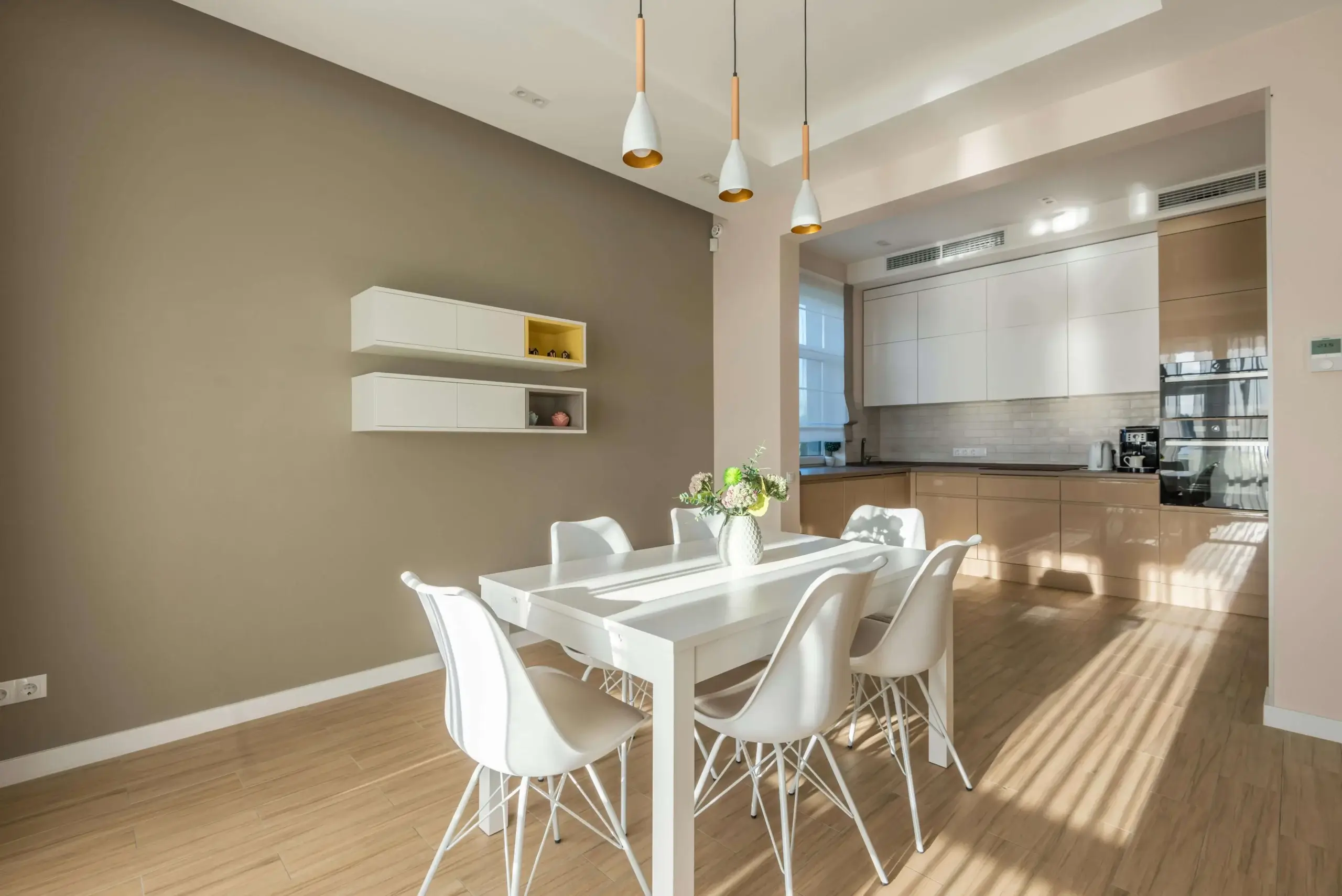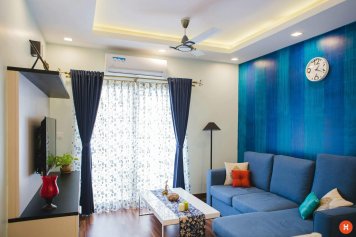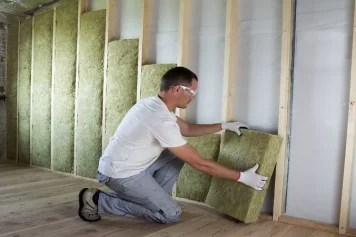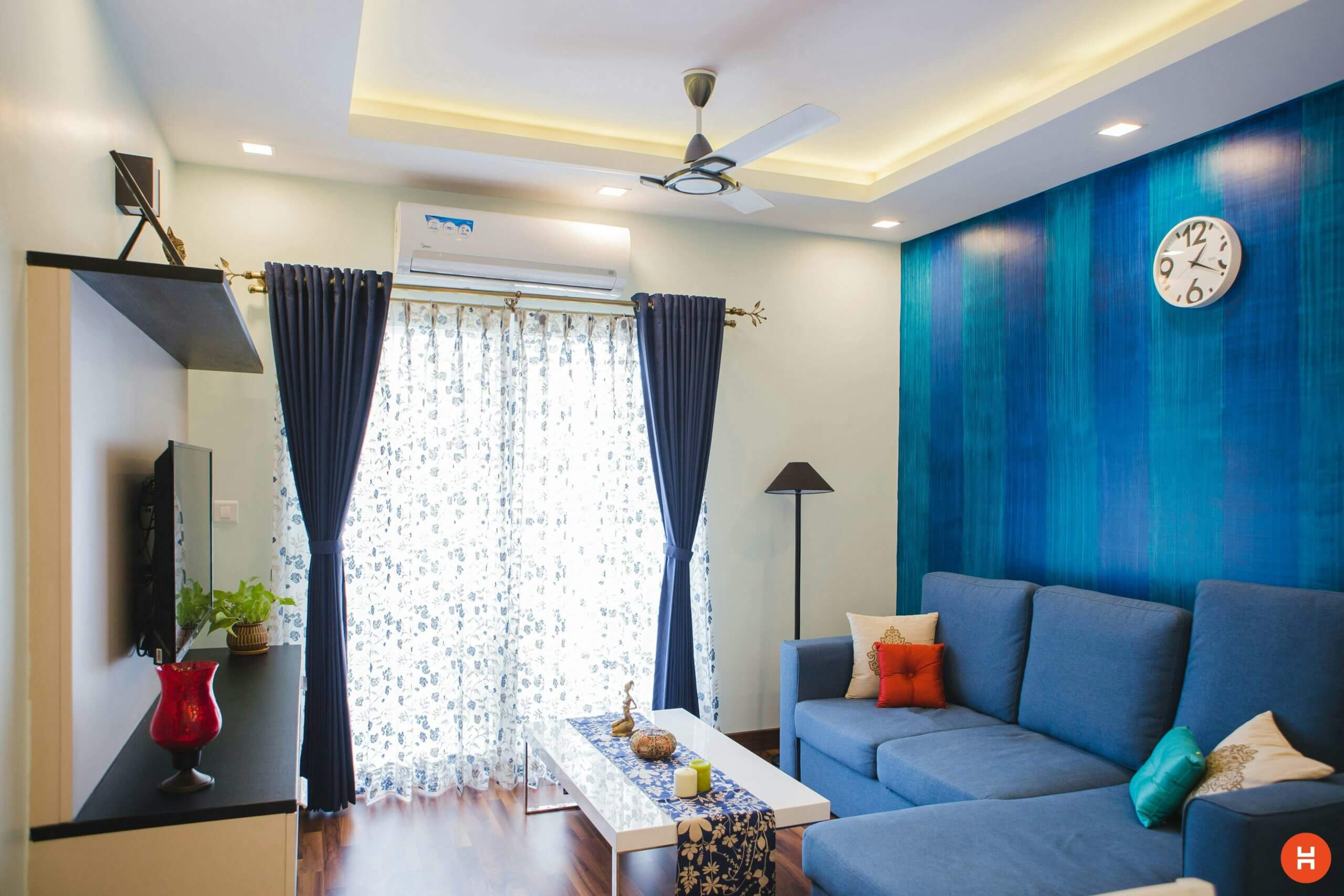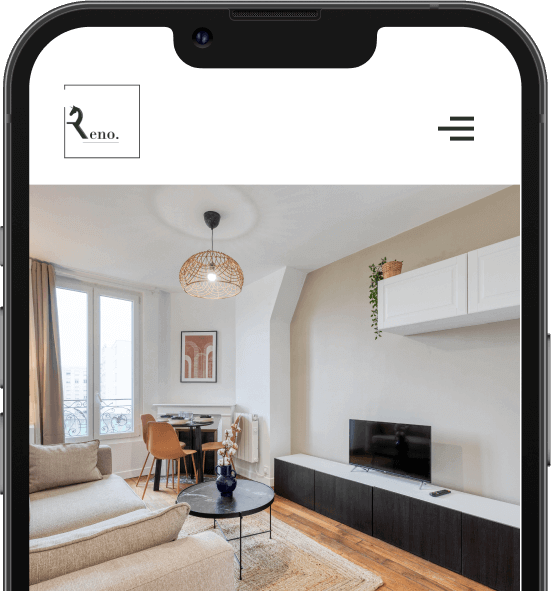House renovation estimates requires a lot of thought to avoid making bad decisions. In 2025, this represents a major budgetary challenge, with construction costs on the rise, particularly due to new energy standards. According to the French Building Federation (FFB) , renovation prices have increased by 12 to 20% this year, partly due to RE2020 requirements. Accurately estimating the cost of a renovation project is therefore essential to avoid unpleasant financial surprises.
The average cost of renovations varies depending on the scope of the project. It ranges from €500 to €800/m² for a light renovation, up to €2,500/m² for a complete renovation. Expenses are mainly split between labor (45%) and materials (40%).
Thermal insulation, electrical upgrades , and bathroom renovations represent significant investments. Hiring qualified professionals and obtaining several detailed quotes are crucial steps to managing your budget. Additionally, financial assistance is available for energy renovation projects, subject to certain conditions.
Understanding the House Renovation Budget
Estimating a home renovation is easier if you take note of the basics of the budget for this type of project. This is based not only on the overall cost, but also on the types of work to be done.
Factors that determine the overall cost
The cost of renovation varies from €300 to €2,500/m² depending on the condition of the property, the type of work, the materials, the surface area, and the labor involved. Insulation, heating, and ventilation represent significant costs. Hiring an architect can cost 12 to 14% of the total budget.
The initial condition and scope of the work significantly influence the budget. A house in poor condition requires more extensive work. The materials chosen, the surface area to be treated, and the geographic location also affect the price. The average cost ranges from €430 to €7,000/m² for major renovations.
Type of Renovation | Price range (€/m²) | Description |
Light renovation/refresh | 100 to 750 €/m² | Painting, floor coverings, renovation of 40 m² of parquet flooring |
Partial renovation | 160 to 350 €/m² | Electricity and/or plumbing |
Intermediate renovation | 300 to 400 €/m² | Walls, floors, kitchen, electricity |
Complete renovation | 950 to 2500 €/m² | Roof repair, wall treatment, sanitation, room redistribution, coverings, heating, bathroom renovation |
Major renovation | 1000 to 3500 €/m² | Work on the main structure |
Energy renovation | 200 to 450 €/m² | Complete eco-renovation to improve energy efficiency |
Price ranges vary depending on the specifics of the project. The materials selected significantly impact the total cost. Finishes range from €30 to €200/m² depending on the quality. Budget-friendly tiles start at €15/m², while high-end tiles exceed €200/m². It’s important to carefully assess your needs to allocate your budget effectively.
Geographic location influences rates, with differences between urban and rural areas. Tradespeople charge varying fees depending on their experience and the region. The average hourly rate is between €40 and €70, with rates as high as €65/hour in the Île-de-France region. This is a position to carefully consider for your project.
Estimate the cost by type of work
Expenses are grouped into specific categories to structure your estimate. Insulation work is among the most significant , as are electrical, kitchen, and bathroom renovations. The amount will depend on the surface area and materials used.
Bathrooms represent significant costs. Renovating a kitchen ranges from €5,000 to €30,000 depending on the fixtures and fittings. A bathroom costs between €5,000 and €25,000. The most expensive items are plumbing and electrical installations. There are ways to save on these items, such as the following:
- Light renovation: €250 to €750 including tax/m² for a refresh
- Energy insulation work: €200 to €500/m² to improve energy efficiency
- Complete renovation: €750 to €1,000 including tax/m² for structural work
- Kitchen: €5,000 to €20,000 depending on the equipment chosen
- Electricity: €500/m² to redo the entire electrical system
Energy renovations are a strategic investment. Thermal insulation helps reduce energy bills. Their long-term profitability increases thanks to government subsidies and increased property values.
Some costs sometimes escape initial estimates. Demolition work, wall treatment, or electrical connections can significantly increase the budget. A margin of 10 to 15% is highly recommended to anticipate these unforeseen events.
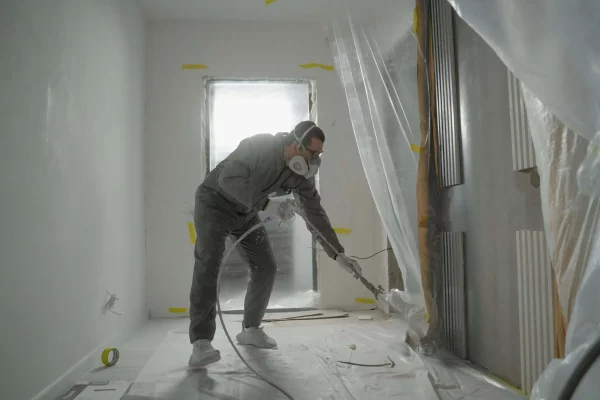
Methods for accurately estimating your renovation budget
You can learn about the best methods for estimating a home renovation. This way, you’ll be protected from unpleasant surprises during the work.
Key steps to assess the overall cost
Before assessing your renovation budget, conduct a complete assessment of your home’s condition. Inspect the insulation, electrical system, plumbing, and any structural defects. You can always inquire about Energy Performance Certificates (EPDs) and environmental regulations . This preliminary approach helps identify urgent work and possible improvements.
The surface area calculation method is based on multiplying the surface area by the cost per square meter. For a light renovation, expect to pay €250 to €750/m², compared to €950 to €2,500/m² for complete renovations. Adjust the figures according to the region, the condition of the property, and the desired materials. An older house or one in poor condition will require higher quotes.
Prioritizing your renovation projects optimizes your renovation budget. Start with structural elements and energy improvements. Follow a logical order: structural work, electrical work, plumbing, then finishing work. Anticipate unforeseen costs by allowing a 10 to 15% surplus of the total budget to avoid unpleasant surprises.
Allow 10 to 15% of your total budget for contingencies. This margin covers unexpected damage or necessary adjustments. It ensures peace of mind during construction. This ensures the project moves forward without major financial setbacks.
Use online estimation tools
Online calculators offer a quick estimate of the cost of the work. They take into account the surface area, the condition of the property, and the desired level of finish. These free tools provide a basis for consideration before consulting professionals.
Several platforms allow you to estimate your renovation budget. Travaux.com offers a price comparison tool, SeLoger includes real estate data, while Avenir Rénovations includes available grants.
However, note that online tools remain limited. They do not take into account property specifics or technical constraints. For a reliable estimate, combine these tools with an on-site diagnostic and detailed quotes.
The results of online simulators serve as a basis for discussion with professionals. Share your initial estimates with the craftsmen for realistic quotes . This approach facilitates negotiation and mutual understanding of the project.
The importance of detailed quotes
Obtaining multiple quotes allows for a reliable estimate. Compare at least three proposals to assess the differences. This ensures an objective view of the market and protects you from price gouging.
A detailed quote should include technical specifications , materials used, delivery times, and any warranties offered. Check payment terms, applicable VAT, and any additional fees. Legal notices and certifications of the professionals should also be checked.
Negotiations with tradespeople are based on a comparative analysis of quotes. Identify expensive items and seek to adjust materials or options. The volume of work or early payment may justify a discount.
To benefit from financial assistance, select RGE-certified contractors. These professionals comply with energy standards and qualify you for MaPrimeRénov’. Always check their qualifications before signing.
The cost of renovation according to the type of housing
The amount you pay to renovate a house may depend on the type of home you have. Therefore, you should take note of the specifics of your building before you begin.
The specificities of old houses
Older homes present challenges such as assessing the building’s condition and managing specific materials. These structures can hide hidden defects, increasing the budget. The cost ranges from €500 to €2,000/m² depending on the surface area and the traditional materials to be preserved.
Property constraints and the dilapidated state of the installations increase costs. A 100 m² house can require a budget between €150,000 and €320,000 . Elements such as asbestos, lead, or faulty insulation require specialized interventions. Old electrical standards often require a complete renovation.
Consulting an architect specializing in heritage projects allows you to combine authenticity and modernity. Old materials such as oak floors or original fireplaces require skilled craftsmen. For a 100 m² house, budget €20,000 to €100,000 to preserve the period charm while improving modern comfort.
Renovating a contemporary house
Recent housing offers technical advantages for renovation. Their design facilitates compliance with current standards. Standard materials and initial insulation reduce unforeseen work. The average cost ranges from €300 to €1,500/m² depending on the scope of the project.
Energy-efficient renovations are cost-effective in 1980s homes. Thermal insulation can save up to 40% on energy bills. Replacing convector heaters with more efficient systems improves comfort. The RT 2000 (French Energy Regulation) imposes affordable energy standards for these buildings.
Modernizing a new home costs less than renovating an older property. A kitchen costs between €5,000 and €20,000 depending on the features. A bathroom renovation ranges from €4,500 to €25,000. For a 70 m² surface area, expect to pay between €24,500 and €28,000 for a complete renovation.
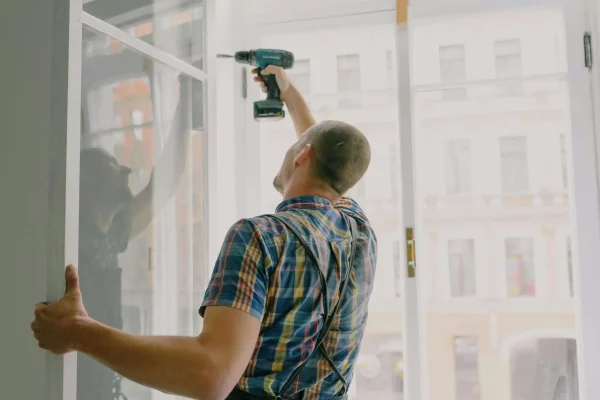
How to optimize your renovation budget?
It’s possible to optimize your budget to finance your home renovation with peace of mind. This depends not only on financial aid, but also on planning the work.
Financial aid and grants available
National and local financial aid facilitates renovations. MaPrimeRénov’ supports energy-efficient renovations, with amounts varying depending on income. Action Logement offers subsidies for low-income earners.
Eligibility requirements for MaPrimeRénov’ depend on household income and the type of work. Low-income households can receive up to 90% of the cost of the work through Anah. Insulation, heating, and ventilation work are prioritized. Aid is more generous for comprehensive projects that improve at least two energy classes.
To obtain assistance, build a solid application. Submit a quote from an RGE contractor , proof of ownership, and your most recent tax notice. Avoid starting work before approval. Submit your application on the official website for valid assistance.
Combining grants maximizes financing. MaPrimeRénov’ can be combined with CEE and eco-PTZ loans. For a comprehensive project, focus on large-scale renovations for higher grants. Support from a Reno advisor can optimize the process and the amounts obtained.
Reduce costs without compromising quality
Save on non-critical items. Prioritizing thermal insulation reduces bills. Choose sustainable materials like linen wool. Economical coverings (PVC, vinyl) mimic expensive materials at a lower price.
For economical alternatives, concrete or stone offer good value for money. Recycled materials, available on platforms like Articonnex, reduce costs. Used equipment, tested for durability, is viable. Straw or hemp, eco-friendly and insulating, are economical options.
Self-renovation is feasible for simple projects like painting, installing parquet flooring, or renovating a kitchen. Calculate your budget for a self-build renovation with our advice. Avoid complex regulations like electrical work without expert advice.
To reduce contractor costs, plan ahead for discounted material purchases. Group projects together for negotiated rates. Prioritize off-peak periods to secure availability at reduced prices. Hiring professionals for critical phases prevents additional costs.
Plan the work to spread out the costs
Stagger the work according to priorities. Start with insulation, then heating, and finally ventilation. A multi-year schedule, validated by a professional, secures your investments. Learn to accurately estimate the duration of your work , taking into account a margin of 10 to 15%.
A phased renovation reduces immediate costs, but can cost more overall. Successive renovations risk rework. Plan technical shutdowns to preserve existing work. Careful coordination between contractors limits interference.
To manage tradespeople in a phased approach, prioritize jobs based on urgency. A work coordinator centralizes the phases, avoiding duplication. A general contractor simplifies logistics, but well-organized independent tradespeople are cost-effective. Anticipate trade intersections to streamline the process.
Renovating a home requires understanding the factors that influence your budget, using reliable tools to estimate the project, and planning your expenses. Starting the assessment early avoids unpleasant surprises, enhances the value of your property, and ensures a well-managed project. An accurate estimate today is a worry-free investment for tomorrow.
FAQ
What budget for an efficient energy renovation?
The budget for an efficient energy renovation varies greatly. For a complete renovation, the average cost is €40,000, with a range between €20,000 and €60,000. The price per square meter ranges between €200 and €800, but can reach €400 to €1,500 depending on the surface area and the work involved.
Several factors influence this cost, including the type of work undertaken (insulation, heating, ventilation), the size of the home, and the materials used. It is therefore crucial to establish a precise diagnosis of your needs and request detailed quotes to obtain a personalized estimate.
What are the pitfalls to avoid in renovation quotes?
There are several pitfalls to avoid when reviewing renovation quotes. A lack of detail is a red flag, as each expense item must be clearly specified. Also, be wary of omissions, unusually low prices, and the absence of mandatory information.
It’s crucial to check deadlines, required deposits, the contractor’s insurance, and payment terms. Don’t hesitate to request multiple quotes and compare them carefully to avoid unpleasant surprises and ensure the quality of the work.
What is the impact of a renovation on property tax?
Renovations can have a dual impact on property tax. On the one hand, certain renovations, particularly those related to energy savings, may qualify for a temporary exemption from property tax. This exemption, whether total or partial, is subject to conditions and depends on local authorities.
On the other hand, renovation work can potentially increase the rental value of the property, which is a factor in calculating property tax. It is therefore possible that property tax may increase after work that significantly improves the property.
What insurance is essential when renovating a house?
When renovating a house, several insurance policies are essential. Building damage insurance is mandatory for work affecting the solidity of the house (walls, roof, floor, foundations) or impacting its intended purpose. It covers defects discovered during the work and for 10 years following completion.
Civil liability insurance is essential to cover damage caused to third parties during construction (neighbors, passersby). It protects against cracks in a neighbor’s wall or other material or immaterial damage.
How to manage nuisances during work?
To manage disturbances during home renovations, it’s essential to consider noise and dust. To address noise, inform your neighbors in advance, respect legal working hours for noisy work, and use quiet equipment.
Regarding dust, cover furniture, floors, and exhibits with tarps, maintain machinery and use dust filters, and humidify work areas to limit dust dispersion. Good site organization and communication with local residents are also crucial.
What is the added value after renovation?
Capital gain after renovation is the difference between the sale price and the original purchase price, taking renovation expenses into account. Renovations can increase the value of a property, particularly energy-efficient renovations, kitchen and bathroom upgrades, adding living space, and improving the exterior.
It’s important to keep receipts for renovation expenses so you can deduct them from your taxable capital gain when you resell. A well-thought-out renovation can not only improve your comfort, but also increase the value of your assets.

